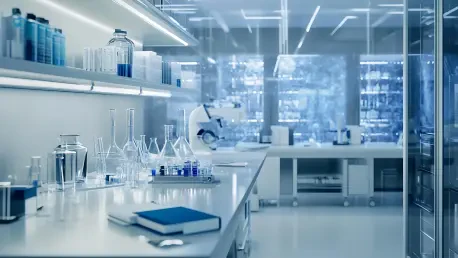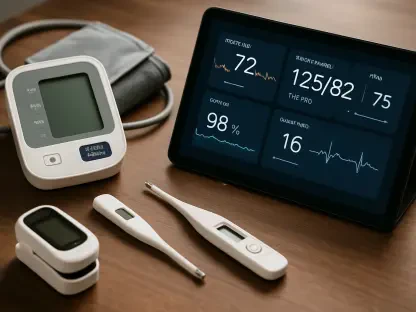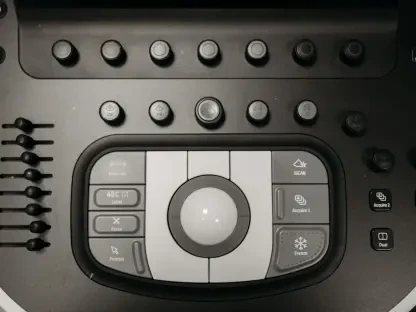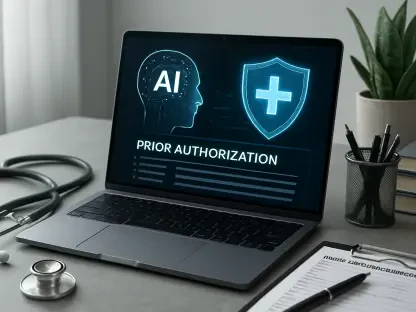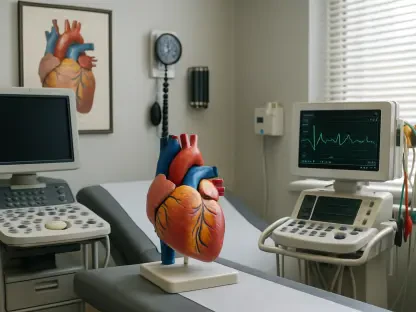The Clinical Reference Laboratory Service Market stands at the forefront of modern healthcare, set for remarkable growth with estimations suggesting a USD 25.8 billion valuation by 2032, propelled by a 5.11% CAGR. The significance of this growth lies in diagnostic testing, rapidly becoming a cornerstone of preventive and personalized healthcare models. As the healthcare landscape evolves, stakeholders within this market are poised to seize opportunities through technological advancements, streamlined efficiencies, and expanded global operations. The adoption of innovative approaches, forming strategic alliances, and adapting to regional healthcare needs are pivotal strategies for staying competitive in this dynamic domain.
Market Dynamics and Service Range
The Spectrum of Laboratory Services
The Clinical Reference Laboratory Service Market encompasses extensive services including molecular diagnostics, clinical chemistry, hematology, microbiology, and immunoassays. These services cater to diverse clientele like hospitals, diagnostic laboratories, academic institutions, and research organizations. The versatility is underscored by the diagnostic tests offered, ranging from genetic and infectious disease testing to metabolic and hormonal assessments. Blood, urine, tissue, and saliva samples are essential to these diagnostic processes, with blood samples being the predominant choice due to their comprehensive diagnostic capabilities and ease of sampling.
The role of diagnostic testing in advancing healthcare delivery cannot be overstated. As healthcare systems worldwide pivot towards prevention and personalization, the demand for precise and efficient diagnostic testing is rising. The advent of chronic diseases like cancer, cardiovascular disorders, and diabetes intensifies the need for swift and accurate diagnostic solutions. Technology-driven evolution in laboratory processes, characterized by automation, digital pathology, and AI-assisted diagnostics, expedites turnaround times and enhances test accuracy, fueling market growth.
Emergence of Key Growth Sectors
Central to market expansion is the demand for molecular diagnostics, rapidly growing due to its emphasis on genomic testing and infectious disease identification. While routine testing holds substantial market share, esoteric and genetic testing gain momentum, notably within precision medicine. This shift aligns with healthcare’s aim of delivering tailored treatment strategies. Regional market dynamics reveal North America leads in market share due to robust insurance coverage and mature diagnostics framework. Europe follows closely with advancements in laboratory automation and personalized testing in countries like Germany, the UK, and France. The Asia-Pacific region, driven by burgeoning healthcare infrastructure and governmental funding in countries like China, India, and Japan, emerges as the fastest-growing market.
Advancements in Technology and Efficiency
Integrating AI and Automation in Labs
The Clinical Reference Laboratory Service Market increasingly incorporates cutting-edge technologies to drive efficiency and enhance healthcare delivery. Artificial Intelligence (AI) and automation are revolutionizing laboratory operations, increasing efficiency and reducing the margin for human error. AI-driven diagnostic tools and automated systems allow laboratories to achieve higher throughput and improve test accuracy while significantly reducing processing time. Integrating Laboratory Information Systems (LIS) further optimizes laboratory management, ensuring data integrity and facilitating the seamless transition of test results into clinical decision-making processes.
The synergy between technology and laboratory services translates to numerous benefits, enhancing service delivery and broadening accessibility. Streamlined processes facilitate quicker diagnosis and treatment, vital for managing complex health conditions. The ongoing evolution in AI and automation technologies promises even more precise and personalized diagnostic solutions, promoting a paradigm shift in laboratory services.
Exploring Telehealth and Genomic Testing
Strategic opportunities abound, particularly with telehealth solutions that offer remote diagnostics with rapid digital result delivery, playing a transformative role in modern patient care. This advancement enhances accessibility for patients in remote regions, providing timely diagnostic results and enabling healthcare providers to make informed decisions despite geographical constraints. Simultaneously, genomic testing witnesses heightened demand driven by the emergence of personalized medicine. Personalized treatment strategies, particularly within oncology and rare disease management, propel demand for comprehensive genetic assessments.
As healthcare adapts to the needs of individuals with chronic conditions, the demand for regular diagnostic monitoring underscores the market’s potential. The preference for decentralized healthcare models catalyzes the expansion of outpatient and home-based testing services, widening the scope of clinical laboratory operations. These developments pave the way for novel diagnostic methodologies and platforms, key to addressing complex challenges presented by evolving healthcare landscapes.
Shaping Market Trends and Competitive Landscape
Automation and Consumer-Centric Approaches
Several primary trends and shifts indicate a pivotal transformation in the market’s landscape. Efforts to integrate automation and AI strategies are crucial in improving diagnostic accuracy and enhancing laboratory efficiency, allowing labs to process higher volumes of samples while maintaining accuracy. There is an increased focus on integrating test results with electronic health records (EHRs), contributing to improved clinical decision-making by providing a comprehensive view of patient health history alongside current diagnostics. Direct-to-consumer testing options are on the rise, driven by consumer demand for convenience, though maintaining quality and compliance standards remain critical priorities.
Efforts to achieve sustainability through eco-friendly operations gain traction, aligning healthcare services with global environmental goals. As industries seek to reduce their carbon footprint, clinical laboratories adopt sustainable practices to enhance public image and contribute positively to ecological efforts. Proactive measures like these are crucial for aligning healthcare initiatives with global sustainability goals.
Strategic Positioning and Adaptation
The competitive landscape of the Clinical Reference Laboratory Service Market is dynamic, featuring prominent players such as Quest Diagnostics Incorporated, Eurofins Scientific, and Mayo Clinic Laboratories. These entities strategically focus on expanding regional presence and integrating advanced technologies like AI to enhance service reliability. Partnerships with traditional healthcare providers allow these organizations to diversify and scale offerings, employing sophisticated testing platforms to cater to a wide array of diagnostic needs. Collaborative approaches among industry leaders set a benchmark in operational excellence, creating a competitive advantage while positioning for success in a rapidly evolving market.
The synthesis of technological innovation and strategic adaptation remains central to success. Thus, achieving scalability through high-volume testing platforms is paramount, enabling laboratories to meet rising demand for diagnostic services without compromising accuracy or quality. Adopting a forward-thinking approach allows market players to navigate the shifting landscape of healthcare diagnostics, ensuring sustained growth and relevance in an increasingly competitive environment.
Future Directions and Implications
The trajectory of the Clinical Reference Laboratory Service Market underscores a transformative journey characterized by significant growth potential and strategic innovation. This burgeoning market is set to propel the healthcare industry forward, driven by enhanced diagnostic testing solutions that underpin personalized and preventive healthcare models. The integration of cutting-edge technologies like AI and automation reshapes laboratory practices, offering healthcare providers and patients more efficient and reliable diagnostic services. Furthermore, the expanding scope of testing methods and adoption of consumer-centric service offerings signal a substantial shift toward comprehensive healthcare solutions accessible to a broader audience.
Insights from the evolving market landscape indicate an industry poised to revolutionize healthcare paradigms through commitment to precision, efficiency, and technological adaptation. By capitalizing on emerging opportunities and anticipating future trends, stakeholders can effectively navigate challenges and possibilities ahead, fostering a robust and accessible healthcare ecosystem for all. The journey calls for a strategic embrace of technological advancements, ensuring laboratories deliver accurate and timely diagnostic services forming the core of modern healthcare initiatives.
